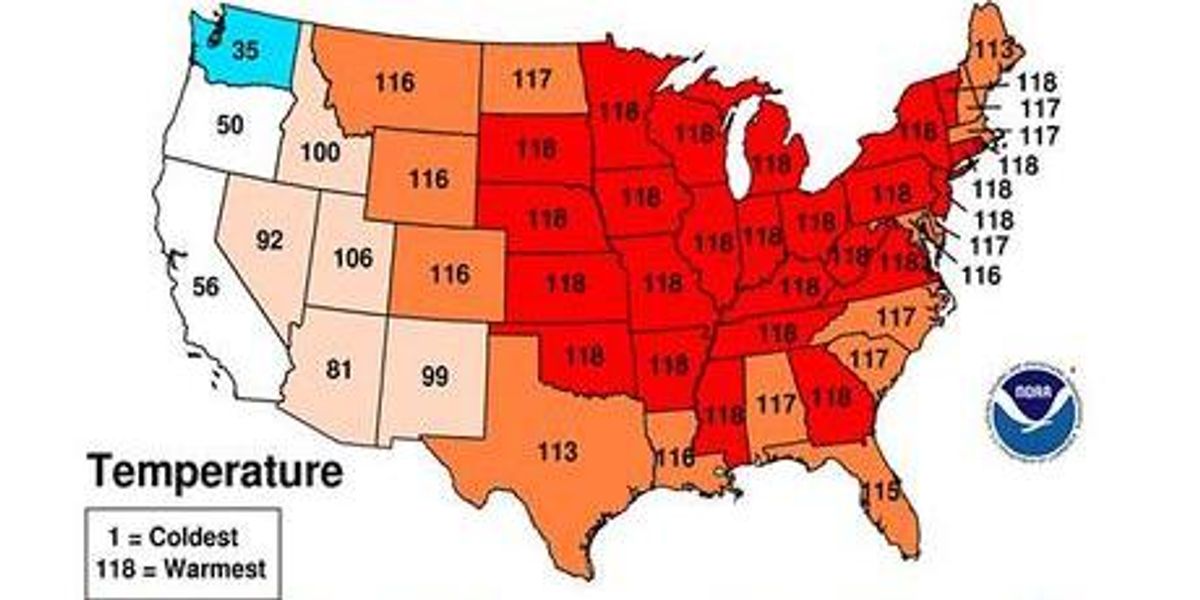The United States had the hottest March this year since record keeping began in 1895, with some 15,000 localities around the country registering record highs. In the map above, which comes courtesy of the National Atmospheric and Oceanographic Administration (NOAA), the red states had the warmest March ever, beige states temperatures well above normal, pink states above normal, and white states about normal; only Washington state had a cooler than usual March.
Is global warming responsible for the March temperatures? Writing earlier this week in the Los Angeles Times, John Michael Wallace, a professor of atmospheric science at the University of Washington, delivered a measured assessment. Wallace, one of the world's most highly regarded specialists in climate dynamics, first of all affirms that the effects of global warming are clearly evident in a statistical increase in record high temperatures, which now outnumber record lows by a ratio of three to one. Rising average global temperatures raise all ships, he observes.
Yet when it comes to March's madness, Wallace withholds judgment. "The cause of last month's strange weather was an extraordinarily large and persistent meander of the jet stream that swept tropical air, with temperatures reaching into the 80s as far north as southern Canada," he writes. "But let's remember where the burden of proof lies. In the world of sports, when an athlete is accused of relying on performance-enhancing drugs, it is the prosecutor who must prove the case. The same should apply to claims that the behavior of the jet stream is being profoundly altered by global warming. Thus far, such assertions are not well supported by scientific evidence."
Much more serious, concludes Wallace, is the projected impact of rising average global temperatures on biodiversity and crop yields in tropical Africa and southern Asia.
"The gradual warming of the tropics may not seem as weird as March Madness, but it has much more important implications for biodiversity, food security and the stability of world financial markets. If global warming continues as projected, the global consequences of deteriorating conditions in the tropics will soon be a lot more serious than a foretaste of summer weather in late winter."



